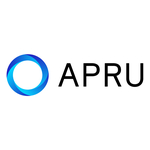Challenging the status quo
SPONSORED INSIGHTS
Guy Mettrick is on the front line. Why? Because Appian’s industry leader for financial services in EMEA is responsible for driving the company’s go to market strategy for financial services across that region. FinTech Futures discusses what this all means and how Appian’s strategy can be delivered.

Mettrick says Appian is a company that changes the status quo.
Mettrick’s job spec is, on the face of it, a straightforward one. His role includes working with customers, partners and industry associations to ensure Appian deliver solutions that help drive growth, manage risk and increase the efficiency and effectiveness of their business processes.
But, one still has to consider how the fundamentals of the capital markets industry are rapidly changing.
Having obtained a Bachelor of Arts degree in business studies (finance & marketing) from the University of Portsmouth, Mettrick held management positions at BNP Paribas and RBC before becoming the head of the European fund business at Sumitomo Mitsui Trust Bank.
For Mettrick the lure of Appian as a company has always been that it is “passionate about challenging the status quo” and “improving the world through great software.”
Yet having great initiatives or indeed software won’t cut the mustard if opportunities to adapt to the profound industry changes now being witnessed, aren’t fully taken up.
Mettrick is aware of this, of course, noting that in the capital markets industry, he is seeing more firms realise the power of intelligent automation.
“There are so many repetitive duties and simple managerial decisions that are ripe for automation.
Robotic process automation, artificial intelligence and machine learning can all contribute to efficiency and accuracy,” said Mettrick.
“Data can be generated and analysed by a human resource when needed, (but) effective use of automation frees knowledge workers to do more critical tasks, and improve performance and efficiency,” he added.
Mettrick is passionate about what can be done , when it comes to Appian helping capital market firms address these challenges. “Appian’s low-code application development platform puts the power and control in the hands of the business,” he said.
“Instead of requiring programming languages and custom code to create apps, Appian’s platform allows business users to portray core features and functions through a visual representation of what the app will need to do, allowing users to quickly mix-and-match components of a solution to create impactful business applications,” he further noted.
In the UK market more specifically, Mettrick observes the increasing tendency of big banks to look for partnerships (or acquisitions) with start-ups in the fintech space.
“They realise that these nimble young start-ups have the agility necessary to respond to today’s rapidly changing, dynamic economic environment,” he said.
Which is where Appian’s low-code platform comes into play.
“With low-code, IT and business work together. They specify their idea for a new application by drawing that flow chart, clicking, configuring, dragging and dropping. The low-code platform then takes that idea – the intention behind the new business app – and translates it instantly into working software,” said Mettrick.
Mettrick’s passion for improving the world through great software is palpable, which is why it comes as no surprise that he chose Appian as his professional home.










































